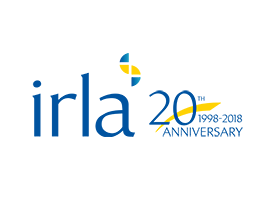The legacy market continues to show an uptick in both deal size and volume, with many promising opportunities ahead, but re/insurers also need to exercise restraint to ensure they aren’t pushing for transactions at unrealistic levels.
 This is according to directors at the Insurance & Reinsurance Legacy Association (IRLA), who sat down with Reinsurance News at their Annual Congress event in Brighton, UK to discuss the future of the sector.
This is according to directors at the Insurance & Reinsurance Legacy Association (IRLA), who sat down with Reinsurance News at their Annual Congress event in Brighton, UK to discuss the future of the sector.
IRLA is the UK market body for insurance and reinsurance legacy management professionals and acts as ‘the voice of the legacy market’ for a range of government and market bodies.
The directors began by welcoming the clear increase in visibility that the market has benefitted from in recent years, which it has been working to support since its formation in 1998.
“I think there’s a strength and diversity of legacy providers, great or small, that probably wasn’t available to potential sellers 5 or 6 years ago,” one director told us.
“The size of the legacy providers may enable them to diversify, which in turn can make them more capitally efficient,” they added. “That efficiency and the skills the legacy market can offer, provide a delta in which a price can be calculated. Both sides potentially can ‘win’ on price.”
The Association also believes that the legacy market is set to see a further boost from the performance drive at Lloyd’s, which is pushing some syndicates towards exiting unprofitable business, potentially through legacy-type solutions.
“Lloyd’s has specifically said that some types of business will not be written by Lloyd’s. That’s a pretty bold statement and of course the Lloyd’s syndicates have had to submit plans which then exclude that business,” IRLA management noted. “That potentially drives the run-off of that business into alternative solutions.”
“And there’s a natural mechanism in Lloyd’s for reinsurance to close,” they explained, “so if you’ve got more than one syndicate running under an agency for example, you could close down that syndicate, put it into run-off and keep your licence going with the business that you want to write.”
Another potential avenue for the legacy market to explore is alternative capital, which has already proven its resilience in the wider reinsurance industry, but for which uncertainties remain in the legacy space.
“What we’re seeing much more is that the alternative capital providers are not running for the hills when things go a little bit wrong,” IRLA’s directors remarked. “They’re actually realising that there’s a cycle in this, and it continues to be a buoyant market that we need to embrace rather than reject.”
However, they added that there is a question as to whether there are enough sellers to drive more capital into the reinsurance and legacy space, along with offering legacy providers the means to access that capital.
“Competition is good. Sellers need it, and people that are taking on run-off shouldn’t be frightened of competition,” one director explained. “The issue you’ll get, and what is a real risk, is too much capital coming in too quickly that will effectively force deals at unrealistic levels being done. And that has the potential to do real reputational damage.”
“So, I think capital is good, competition is good, but the balance has to be fair and reasonable pricing. Pricing discipline frankly needs to exist.”
IRLA also spoke to the potential issue of re/insurers in the legacy market pursuing increasingly large deals, and the sustainability of this trend as further competition causes returns to shrink.
“Just because the deal isn’t attractive because of your capital cost, it might be to someone else,” a director explained. “So, it doesn’t mean it’s badly priced, it just means it’s a different pricing mechanism.”
Another commented: “The only caution I would add is not that a deal can make sense for people for different reasons, just that we need to be careful that deals aren’t done at any cost just to get the deal done, because that is going to lead to pain.”
IRLA concluded the discussion by highlighting the need to ensure the continued success of the legacy market by attracting fresh talent into the sector.
“We recognise a need to bring the young professionals into the market, whatever their specialties and current roles, and so develop legacy into something different all the time,” the directors said. “IRLA wants to facilitate change and encourage young people to come into legacy.”
They continued: “We’re in a space here, in legacy, where we’re still writing the rulebook, and that’s exciting. We’re still growing the offering, still developing and that can only encourage creativity.”
“25 years ago, there wasn’t a defined career opportunity in run-off. Now there’s a developed market and opportunities for development throughout your career.”


